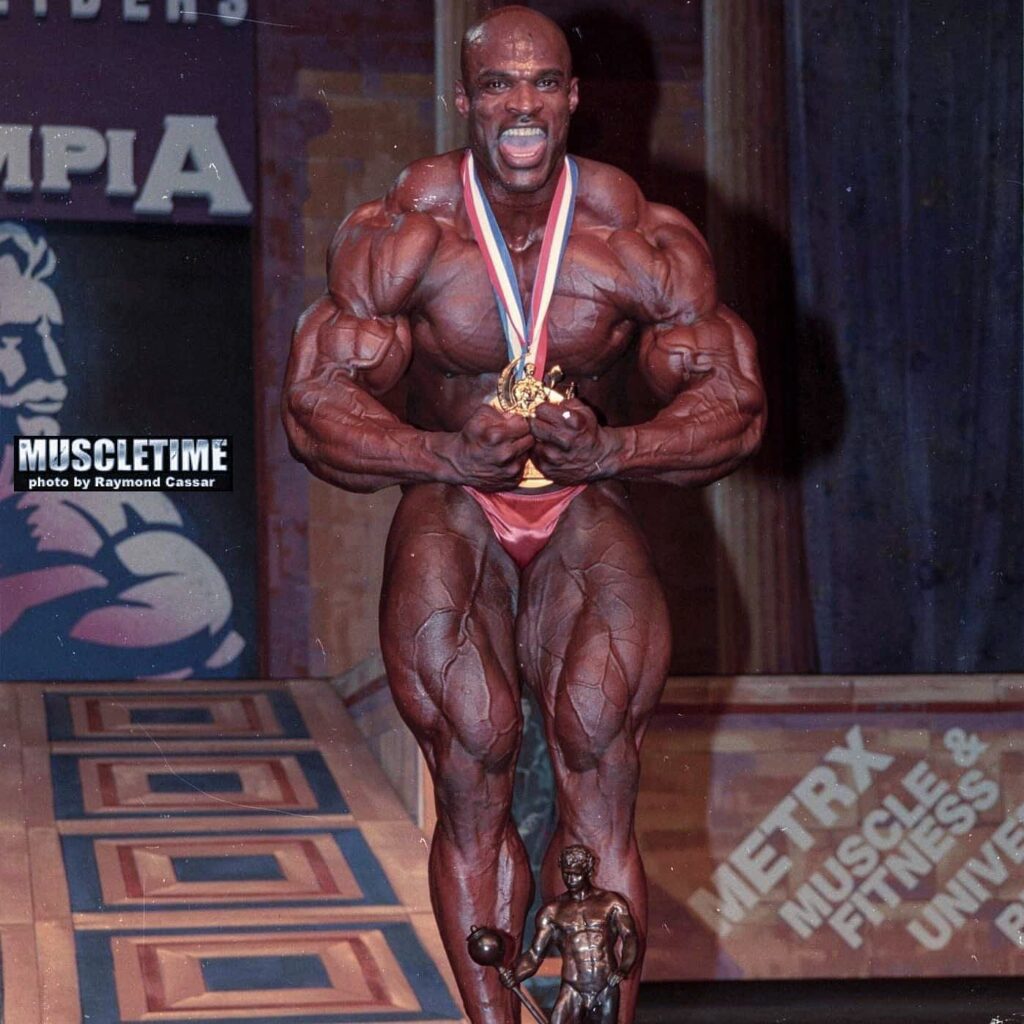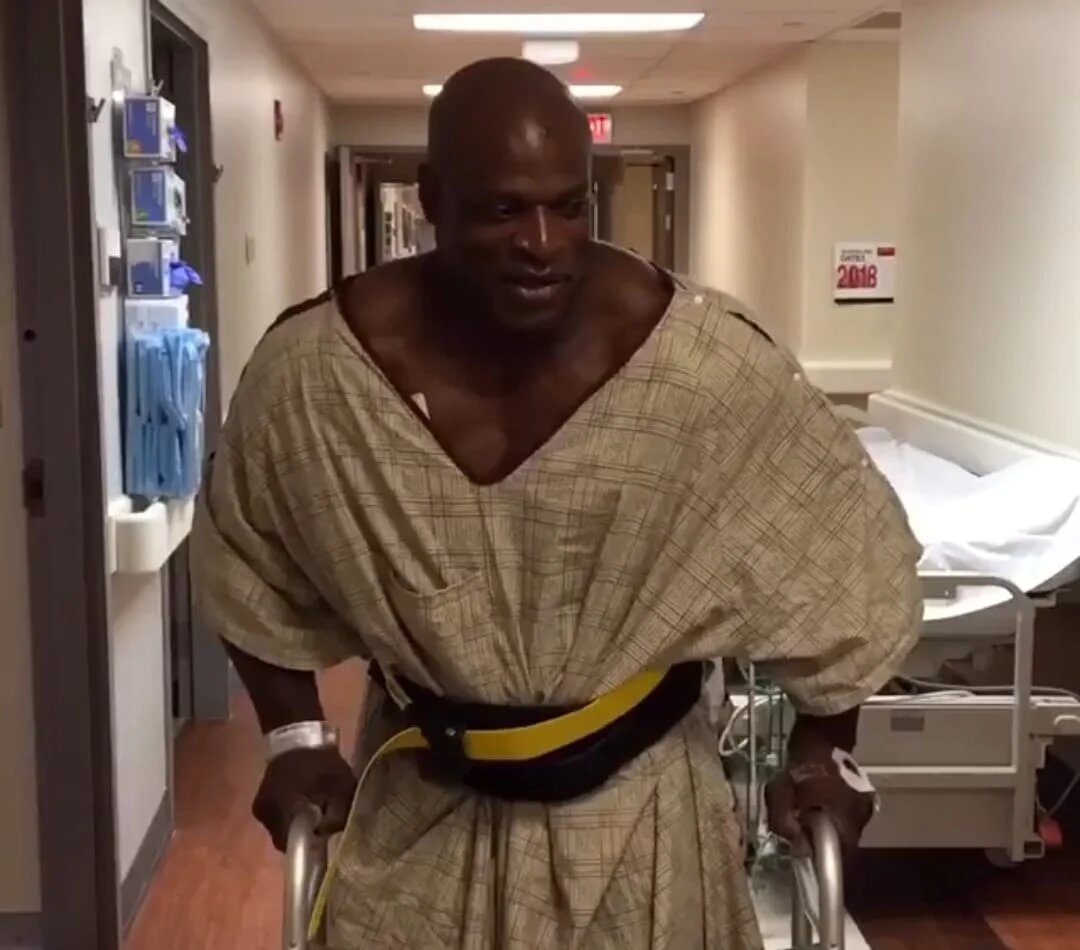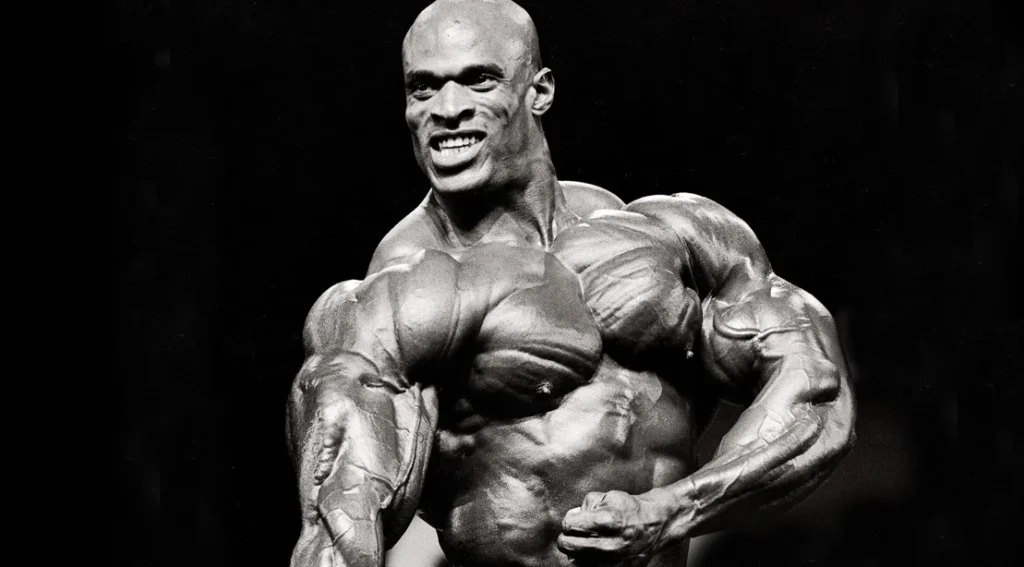Ronnie Coleman is a former competitive bodybuilder and eight-time Mr. Olympia winner. Although he is regarded as one of the best athletes of all time, his profession was not without its challenges.
Ronnie Coleman disclosed in 2018 that he had had a total of 13 operations, including several back operations, hip replacements, and spine fusions.
Many of these operations were required because of the wounds he developed while competing as a bodybuilder, including one especially terrible incident.

Ronnie Coleman’s Devastating Injury and its Aftermath
In 2007, Ronnie Coleman experienced a terrible mishap as he was getting ready for the Mr. Olympia tournament. He was doing an 800-pound squat when he heard a deafening pop and instantly collapsed to the ground.
Ronnie Coleman was taken to the hospital for emergency treatment after suffering a disc tear in his lower back.
Although a six-hour operation was used to fix the damage, the accident eventually led to the end of his bodybuilding career.

For Ronnie Coleman, the accident’s aftereffects were disastrous. He struggled to move or walk without help for months during his rehabilitation.
His longtime love and job, competitive bodybuilding, had to be put on hold. His personal life was also negatively impacted by the mishap, as he battled melancholy and feelings of loneliness.
Ronnie Coleman was persistent in his desire to heal from his wounds and reclaim his mobility despite the obstacles he encountered.
To fix the harm to his spine, he endured numerous surgeries and worked with physical therapists.
Ronnie Coleman, however, would never be able to regain his prior level of athleticism because the path to recovery was so lengthy and challenging.
The Importance of Proper Training and Avoiding Overtraining in Bodybuilding
The Ronnie Coleman tragedy should act as a wake-up call to all bodybuilders and athletes. It’s a stark warning of the dangers that come with pushing the human body’s boundaries.
Although bodybuilding can be a gratifying and enjoyable hobby, it can also be very taxing on the body over time.

Overtraining is one of the leading causes of pain in bodybuilders. Bodybuilders frequently test their stamina by lifting hefty weights and conducting intense workouts for prolonged periods.
This places a great deal of pressure on the body, which can result in injuries and long-term harm.
Injuries can result from overtraining as well as from having bad form and skill. When conducting exercises, particularly when lifting large weights, bodybuilders must use the correct form and technique.
If you don’t, you risk suffering severe injuries, as happened to Ronnie Coleman.
The Importance of Prioritizing Health and Safety in Bodybuilding and Coping with Injuries
Bodybuilders should put safety and correct practice first to avoid accidents like the one Ronnie Coleman experienced.
This entails using weights that are suitable for their strength level, taking days off to let the body recuperate, and getting medical help if they feel pain or discomfort.
Bodybuilding is still a well-liked recreation and exercise activity for lots of people all over the globe, despite the dangers involved.
It takes remarkable commitment and effort to become a great bodybuilder, and the physical outcomes can be truly amazing. Bodybuilders should keep in mind that their health and safety should always come first.
It’s essential to consider the psychological and emotional effects of injuries like the one Ronnie Coleman sustained in addition to the physical toll that weightlifting can have on the body.
Many players view their sport as a vital component of their personality and self-worth rather than just a pastime or job.
When accidents occur, it can be challenging to come to terms with losing this significant part of one’s life.
Backup from Injury
After his injury, Ronnie Coleman experienced mental difficulties. As he negotiated the difficulties of recovery, he battled melancholy and feelings of loneliness.
It’s critical to understand the effects sports accidents have on mental health and to support players through these trying times.

Ronnie Coleman has continued to be an influence on many in the bodybuilding world, despite the difficulties he encountered.
He has persisted in telling his tale and inspiring others to put safety and an appropriate method first when they exercise.
To remain busy and sustain his health, he has also embraced new types of exercise, like cycling.
Important discussions about the necessity of improved safety measures and rules in the sport of bodybuilding have also been spurred by the Ronnie Coleman accident.
To avoid injuries and advance their long-term health, many have argued that players need to receive more instruction and training.
Others have proposed modifying the structure of bodybuilding competitions to lessen the focus on extreme muscularity and to support a more long-term strategy for fitness.
FAQ’s
He underwent a six-hour operation to repair the damage, but the injury eventually led to the end of his bodybuilding career.
It’s essential to prioritize our general health and well-being and take good care of our bodies to avoid needless risk and harm.
Related Article: Ronnie Coleman Disease
Related Article: Ronnie Coleman Coach
Related Article: Ronnie Coleman Quotes
